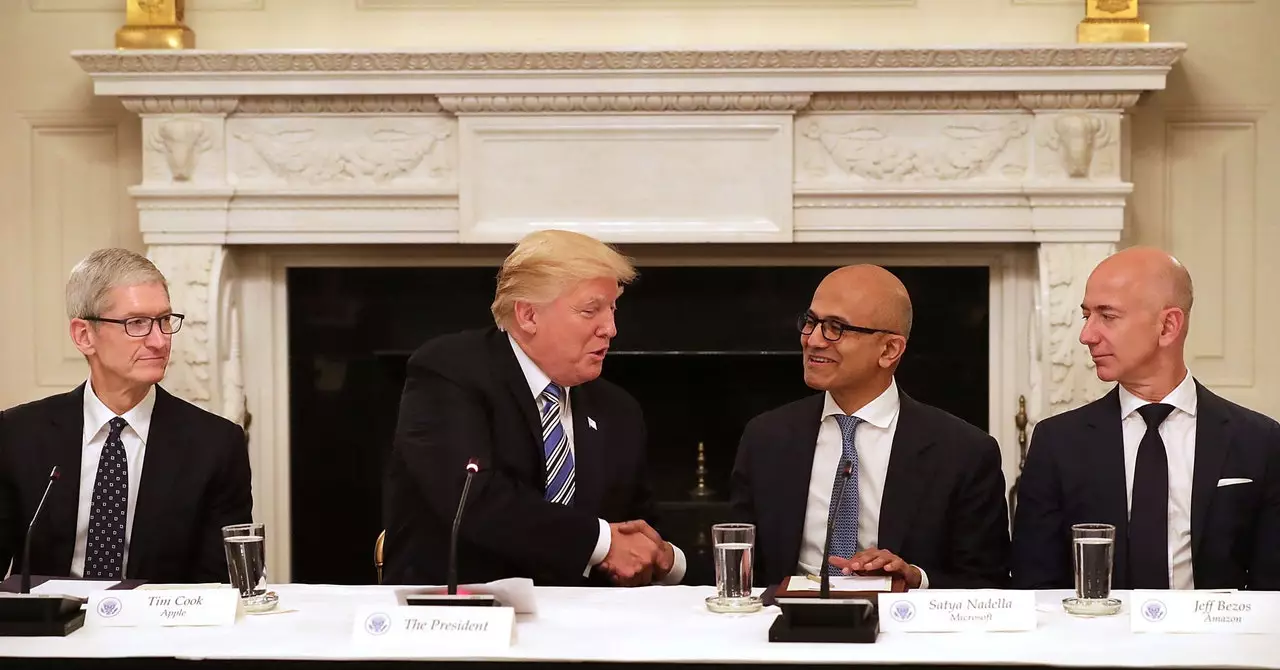In the aftermath of the recent political rhetoric surrounding the tech industry, the potential future landscape of Big Tech under a new Trump administration has become a point of intense scrutiny. Promises made during campaign frenzy indicate a strategic and confrontational approach towards influential figures within the regulatory bodies that oversee technological enterprises. Among those likely to face repercussions is Gary Gensler, the current chairman of the Securities and Exchange Commission (SEC), who has led numerous legal actions against cryptocurrency ventures. This situation highlights how intertwined political agendas and regulatory policies are as they relate to the burgeoning tech landscape.
Former President Donald Trump’s commitment to firing Gensler was met with roaring approval from supporters who view the SEC’s crackdown on the cryptocurrency sector as an overly aggressive and misguided approach. This sentiment resonates particularly among cryptocurrency enthusiasts who argue Gensler’s actions have stifled innovation within the sector. Trump’s pledge to terminate Gensler’s term signals a potential shift towards a regulatory environment friendlier to crypto businesses, which may encourage the growth and acceptance of digital currencies.
However, the complexity of regulations and the legal landscape surrounding cryptocurrencies cannot be overlooked. The past actions of the SEC under Gensler demonstrate the agency’s proactive stance in curbing illegal activities associated with crypto trading platforms, reflecting a necessary balance of innovation and legality. Therefore, while a Trump administration might favor a more lenient approach, the broader implications of cryptocurrency’s nature warrant careful consideration.
Another pivotal promise from Trump is the commutation of Ross Ulbricht’s life sentence for his role in creating Silk Road, a notorious darknet marketplace. This marketplace not only facilitated the trade of illegal substances but also served as an early adopter of Bitcoin as a payment method. The case has sparked ongoing debates among libertarians and Bitcoin supporters who argue that Ulbricht’s punishment does not fit the crime, especially in a landscape where state-sponsored surveillance and overreach continue to escalate.
Commuting Ulbricht’s sentence could send a signal regarding the administration’s stance on personal freedoms, online privacy, and the legality of cryptocurrencies. Such moves also highlight a larger discourse surrounding the effectiveness of the criminal justice system in addressing crimes associated with technology and commerce.
The anticipated administration of Trump has been a cause of concern for figures like Lina Khan, the current Chair of the Federal Trade Commission (FTC). Her aggressive approach towards antitrust enforcement during her tenure has drawn both accolades and ire. Critics, including prominent tech figures and financial analysts, have framed Khan’s regulatory framework as detrimental to the tech ecosystem, citing that her strategies have led to increased tension between Big Tech and Washington.
However, this brings about the question of whether Trump’s potential actions, if he is re-elected, would include a free pass to Big Tech or a means of furthering his administration’s agenda by leveraging existing cases for leverage over these entities. The mixed signals from Trump’s camp, juxtaposed with praise and criticism aimed at Khan, reflects a broader uncertainty around how these relationships will evolve.
As Trump positions himself for a potential return to power, the commitment toward adjustments in tech policy raises critical questions about the administration’s ability to effectively navigate the complexities of an ever-evolving digital landscape. Balancing the needs for innovation in technology with the necessity of regulatory oversight will be a central challenge. The outcome of such governance will ultimately shape the future of American tech industries, from cryptocurrency to social media giants, who are continually grappling with issues of content moderation and censorship.
The transition of power can often reshape industries in unpredictable ways. Should Trump reclaim the presidency, the ripple effects felt in the tech world are set to be significant, but determining whether these effects will foster an environment of growth or discord remains to be seen. The interplay between governance, regulation, and innovation poses a fascinating, albeit precarious future for technology in America.


Leave a Reply